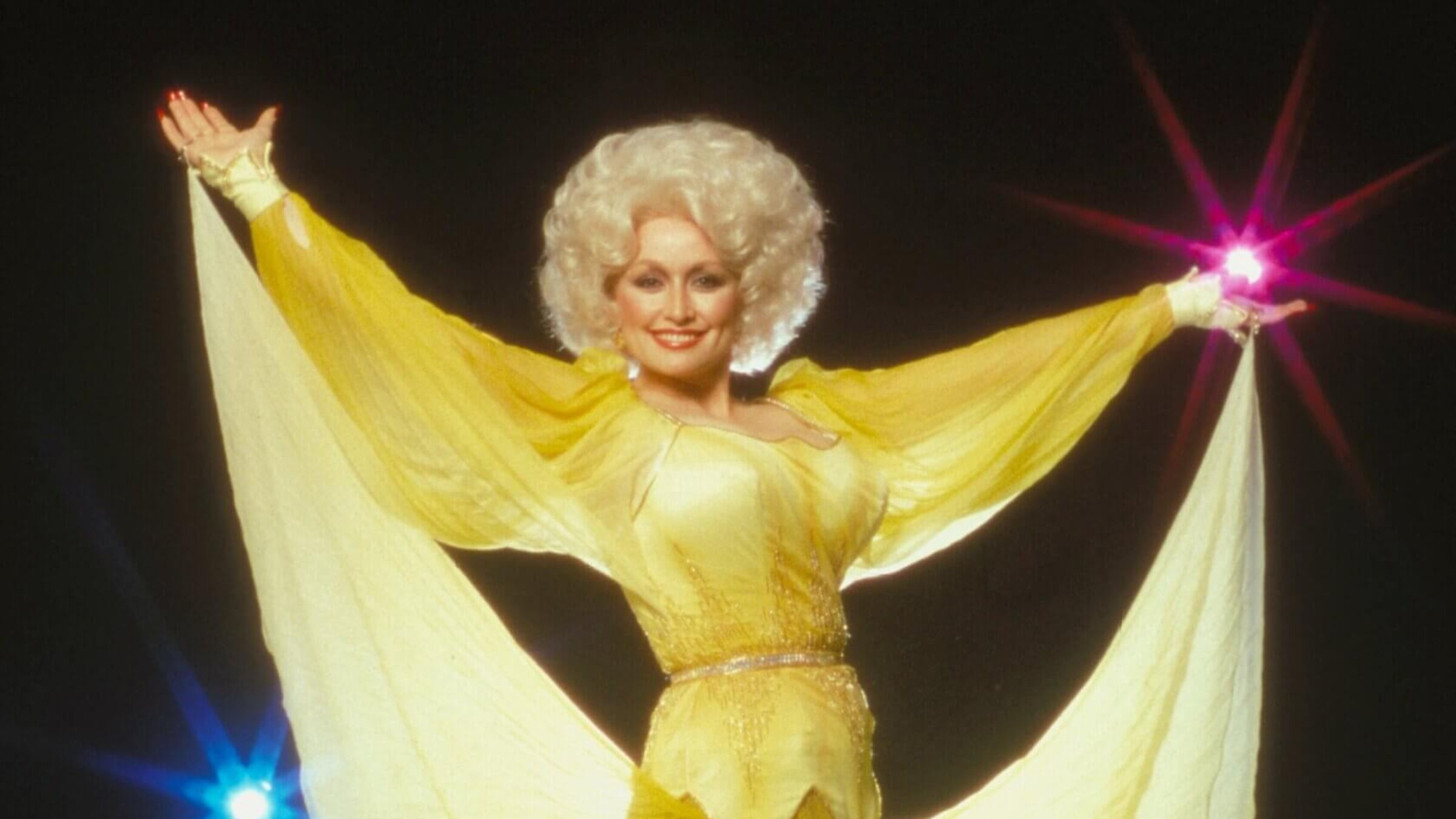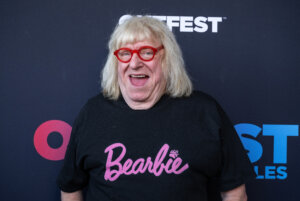So, how did this 74-year-old Jewish guy with the goofy glasses wind up writing a Dolly Parton musical?
Bruce Vilanch is 1 of 3 writers on ‘Here You Come Again’

Dolly Parton, circa 1978. Photo by Getty Images
There are now three Bruce Vilanches.
There is Bruce Vilanch, the personality who appeared in numerous films, on Broadway and on Hollywood Squares.
Then there is Bruce Vilanch, the comedy writer, who spent a decade as head writer for the Academy Awards (earning six Emmys in the process) and also provided material for Bette Midler, Paul Reiser and Dolly Parton, among others.
The Parton connection proved key in Vilanch’s third incarnation: playwright. Along with the husband-and-wife team of Gabriel Barre and Tricia Paoluccio, Vilanch has co-authored Here You Come Again, a musical comedy that features the songs of Dolly Parton.

Here You Come Again tells the story of a die-hard Parton fan who just broke up with his boyfriend and now finds himself confined to his parents’ attic at the start of the pandemic. Who can help him? None other than an imaginary version of his idol, who miraculously appears and uses her wit and songs to lift his spirits and teach him about life.
Ironically, the pandemic was a key factor in the development of the show.
“I had done another show with Gabriel, who is the director, and we’d remained friends,” Vilanch told me over the phone. “His wife, Tricia, has played Dolly (in regional theater presentations of) Nine to Five and I think has been fixated on Dolly for a long time. They had this crazy idea for a show about Dolly that would involve her music and I loved it.”
This was in 2020, at the height of the pandemic. “The government set up the PPP program, which sounds obscene,” said Vilanch. “It’s the Payroll Protection Plan. The government gave grants to non-profit arts organizations to keep them going. But part of the deal was that they had to use a portion of that money in grants to develop new work. So there were lots of theaters with money suddenly on their hands and they needed to have new shows. So we found one, in Florida, or they found us. We got a grant, sat down and wrote the thing. And they loved it.”
The next hurdle was getting approval from Dolly Parton to use her music. “I did a TV show with her 35 years ago, and I’ve seen her off and on since then,” said Vilanch.
That show was called Dolly, which Vilanch called a misguided attempt “to turn her into Carol Burnett, which of course she is not.” He helped transform what had been a weekly series into a series of variety specials that did well — though not well enough to garner a renewal.

Getting Parton involved “was not difficult,” Vilanch said, but it “was time consuming, because she has a million things on her plate.” But they got together via Zoom. “She loved it. She’s now our partner.”
The show will not make it to Broadway, because Dolly Parton is working on a musical about her own life a la Carole King, but there has been a six-city regional theater tour which is ending at Goodspeed.
“We haven’t had our eyes Broadway, but it is the kind of show that can play well across America,” Vilanch said.
Vilanch got his start in the entertainment industry as a reporter. “I was on the Chicago Tribune and I interviewed Bette Midler,” he said. “She liked it. She thought I was funny. I told her, ‘you’re funny. You should talk more.’ And she said ‘you give me the lines,’ and that was the beginning.”
Others noticed Bette’s burst of cleverness, and contacted him for cleverness of their own. The writing led to a number of opportunities. He worked briefly as a stand-up comic some years ago. How long ago? Jon Stewart was the nightclub doorman.
Then there was the forgettable role of Uncle Max in Oy Vey My Son is Gay, a comedy of sorts, which starred Lainie Kazan.
“The New York Times said this is a movie that wants you to believe that no one knows Bruce Vilanch is gay.”
“I never came out. I was never in,” Vilanch told me. “By the time people started coming out, it was kind of established. People kept saying how brave I was. But I was in a business that encourages eccentricity and flamboyance. I was not a cost accountant working at an insurance firm. So it was just viewed as a facet of my personality the real brave people were the doctors and lawyers who came out.”
Vilanch was adopted by a New Jersey couple when he was four days old. He had a Jewish upbringing, which included Hebrew school, membership in United Synagogue Youth and a bar mitzvah. In fact, he says, he had two bar mitzvahs. The first was the regular one; the second came a year later. Without another candidate, the rabbi invited him back to read his haftorah again.
Some time after his adopted mother died about a decade ago — his father died years earlier — Vilanch “spit into a cup” for a genetic test and a cousin surfaced.
“My birth mother had me when she was 16,” he said. “Ten years later she married and had a whole other family. They’re all out here in California and we see each other all the time.”
Don’t you just love a happy ending?
The musical Here You Come Again runs July 26 to Aug. 27 at Goodspeed’s Terris Theater stage in Chester, Connecticut.





















